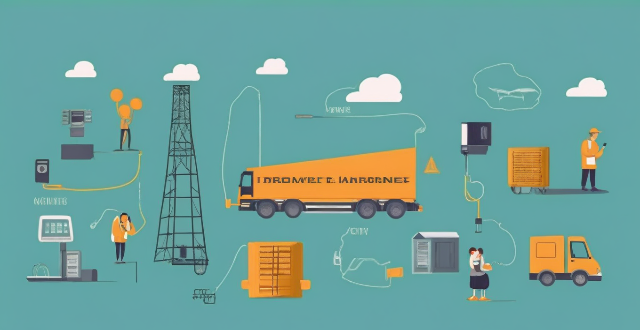The importance of having a backup power source in case of emergencies is crucial in today's world where we rely heavily on electricity. A backup power source can prevent data loss, maintain essential services, ensure safety, reduce downtime, and improve quality of life during power outages. There are various types of backup power sources available, including UPS, generators, solar power systems, and battery backups. Investing in a backup power source is an investment in peace of mind and preparedness for any emergency situation.

The Importance of Having a Backup Power Source in Case of Emergencies
In today's world, where we heavily rely on electricity for almost every aspect of our lives, having a backup power source becomes crucial in case of emergencies. Let's discuss the importance of this necessity.
Why is it important to have a backup power source?
- Preventing Data Loss: Unexpected power outages can lead to data loss or corruption. If your computer suddenly shuts down while you are working on an important project, all your progress could be lost. A backup power source ensures that you have enough time to save your work and safely shut down your devices.
- Maintaining Essential Services: In case of extended power cuts, a backup power source can help maintain essential services like heating, cooling, and refrigeration. This is especially critical for healthcare facilities, where lives may depend on the continuous operation of medical equipment.
- Ensuring Safety: Sudden blackouts can create safety hazards. For example, if streetlights go off during a power outage, it could increase the risk of accidents or crime. A backup power source can provide illumination until normal power is restored.
- Reducing Downtime: For businesses, every minute of downtime can result in significant financial losses. A backup power source ensures that operations can continue even during power disruptions.
- Improving Quality of Life: During natural disasters or extreme weather conditions, power outages can last for days or even weeks. Having a backup power source can significantly improve the quality of life by providing access to basic necessities like light, heat, and the ability to cook food.
Types of Backup Power Sources
There are various types of backup power sources available, each with its own advantages and disadvantages. Here are a few examples:
- Uninterruptible Power Supply (UPS): These are commonly used for computers and other electronic devices. They provide instant power in case of an outage and can protect against power surges. However, they typically only provide power for a short period (usually a few minutes).
- Generators: These are more suitable for providing long-term power during outages. They can run on various fuels like gasoline, diesel, or propane. However, they require regular maintenance and can be noisy.
- Solar Power Systems: These are becoming increasingly popular as an eco-friendly option for backup power. They convert sunlight into electricity, which can be stored in batteries for later use. While they require an initial investment, they offer long-term benefits and reduce reliance on non-renewable energy sources.
- Battery Backups: Some systems come with built-in battery backups that can provide power for a limited time. These are often used in conjunction with other backup power sources.
Conclusion
In conclusion, having a backup power source is crucial in ensuring continuity of operations, maintaining safety, and reducing the impact of unexpected power outages. Whether you choose a UPS, generator, solar power system, or a combination of these options, investing in a backup power source is an investment in peace of mind and preparedness for any emergency situation.